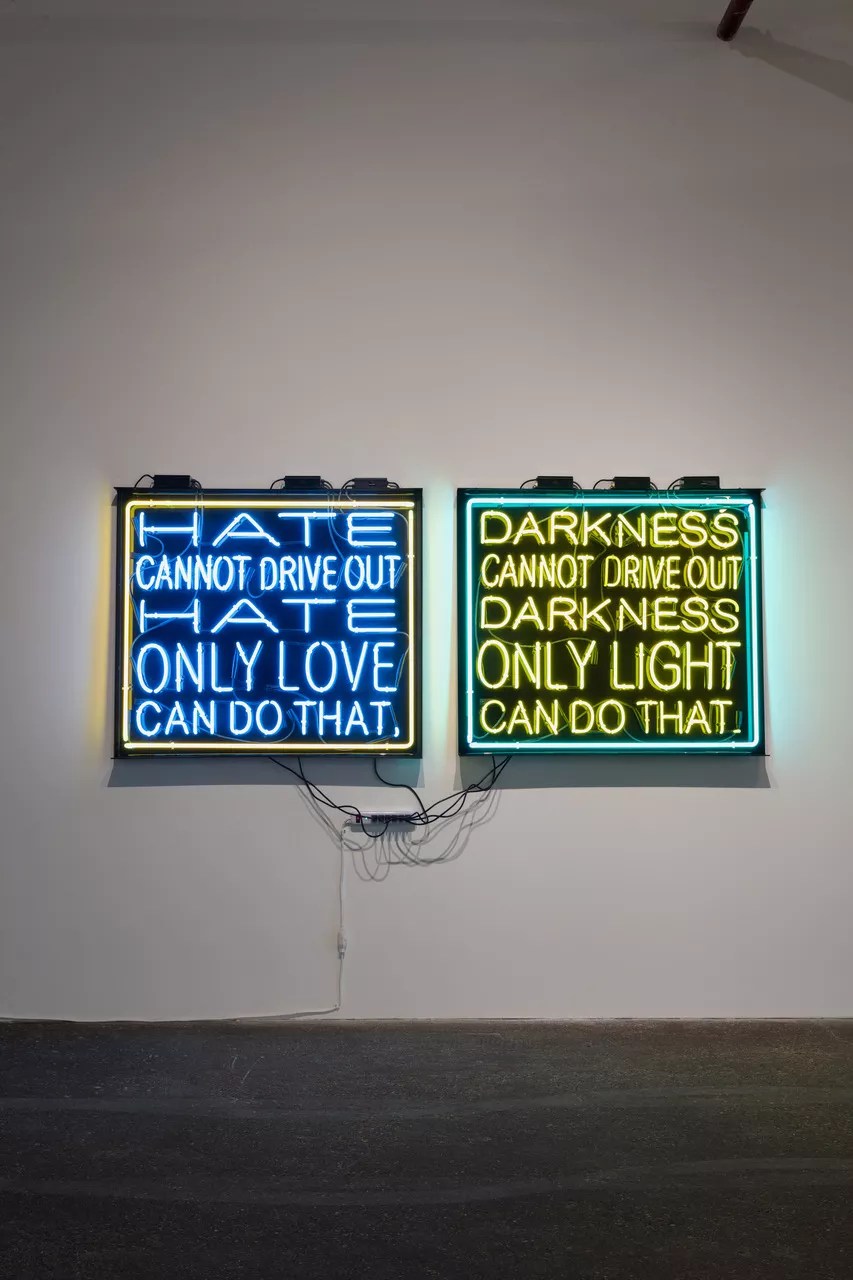
Kevin Todora

Audio By Carbonatix
Last Friday, the National Endowment for the Arts announced a sudden change in policy from the Trump administration, terminating a number of already approved grants for arts organizations in North Texas without any notice. For decades, the governmental organization has helped fund local arts programs and organizations in communities across the country.
Among the local art organizations affected is publishing company and bookstore Deep Vellum, which received an email on Friday, May 2, with notice that a previously approved $20,000 grant would be terminated, effective at the end of the month. Little explanation was provided, but the email listed the types of projects that the NEA plans to prioritize moving forward, including some head-scratchers, like the fostering of AI competency, the 250th anniversary of American Independence, and “making America healthy again.”
“The email was more confusing than it was clarifying,” says Will Evans, CEO and publisher of Deep Vellum. “Some of the language used in the email is a bit chilling, and it seems to be intentionally obfuscating.”
Deep Vellum was approved for a $20,000 grant for a project of four books from four different continents:
Carapace Dancer by Natalia Toledo, translated from Zapotec, an indigenous language in Mexico.
Juvenilia by Hera Lindsay Bird of New Zealand and illustrated by Gino Dal Cin.
Schattenfroh by Michael Lentz, translated from German by Max Lawton.
The Ruins by Ye Hui, translated from Chinese by Dong Li.
“We had a contract with the government, and right in the middle of it, they terminated,” says Evans. “It’s bad business practice. We were awarded this grant on an open call. It went through committee review, judges, Congressional approval as it does every year. To get this termination is just really strange.”
Though Evans found the termination strange, he says the decision wasn’t much of a surprise.
“The writing was on the wall,” says Evans. “They campaigned on this stuff. We lived through the first Trump administration and there was daily stress and confusion over a lot of different parts of society there too. We know what it takes to survive.”
Aaron Glover feels the same. He’s the executive director of the Writers Garret, a Dallas-based literary organization that also received notice of funding termination. The organization is celebrating its 30th anniversary later this year.
“As soon as we saw what was coming down in January, we had already started shifting expectations for where or how much funding we might find,” Glover says.
Glover also says the timing couldn’t have been worse. Next week, the Writer’s Garret is holding its annual Dallas Is Lit festival, with four days of programming that include a book fair, live readings, and a conversation with Joy Harjo, who served as the 23rd United States poet laureate from 2019 to 2022.
“One of the biggest frustrations about this is that the Dallas literary community has been working really diligently to build some momentum around us as a literary city,” Glover says. “This does throw a cold blanket on that.”
The decision is impacting artists outside of the literary world as well. The Dallas Contemporary art museum was in line for a $35,000 grant for an exhibition planned for later this year. Titled “Bodies, Bodies, Bodies,” the concept revolved around the challenges of inhabiting a human body in 2025 and was set to feature nine different artists. However, it was canceled prior to the NEA news due to an existing lack of funds.
Gino Dal Cin, who also illustrated the Juvenilia book for Deep Vellum, is the senior manager of development operations for the Dallas Contemporary.
“Given the NEA’s newly stated priorities, we no longer have the confidence that the kind of exhibitions we produce align with their direction,” Dal Cin says. “We now have to seriously consider that government grants may no longer be a dependable resource for institutions like ours.”
The Bishop Arts Theatre Center is facing the same quandary. The multidisciplinary arts center was in line for a $15,000 grant to produce A Dallas Hadda, a play written by Franky D. Gonzalez, the organization’s playwright in residence. Executive artistic director Teresa Wash says that the play was already in preview showings when the news broke.
“It’s very unfortunate,” says Wash. “We had a great relationship with the National Endowment for the Arts. With everything that’s happening at the NEA, we’ve decided not to apply for federal funds.”
Tickets to A Dallas Hedda are still available for performances through Saturday, May 10.
Dallas theatre space Kitchen Dog Theater announced in an Instagram post on Wednesday that it, too, had received a notice last Friday that funds were being “withdrawn.” The organization says it was promised $20,000 six months ago.
“6 months of time and money spent,” the statement says. “While this news was definitely a harsh blow to our budget, WE WON’T BACK DOWN.”
In spite of the news, the representatives of these Dallas arts organizations maintained remarkable optimism about the future of the Dallas arts and culture as a whole.
“It’s definitely raising issues around the importance of keeping cultural institutions,” says Wash. “During COVID, we knew how important our arts were. I think this is another watershed moment.”
Glover says a lack of federal funding support has only increased the demand for fostering a sense of local connection.
“If anything, this has made us more sure that our mission is to connect people through the imaginative power of language,” he says. “That means doing that regardless, or in spite of what may be coming down from a federal perspective.”
For Evans, the news of funding termination has created a renewed opportunity to refocus on what’s most paramount – the greater good of the work that institutions like his weave into the fabric of Dallas arts.
“The outpouring of community has just been tremendous, and it reminds us why we do this work,” says Evans. “It’s bigger than money, and it’s bigger than any one grant from the federal government.”